Articles Tagged with #working
-
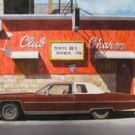
News From America
Odd People Here
by Matt Ray RobisonThe United States is a huge country, much too big for the nightly news. Our series continues where one of our editors randomly calls people in small towns around America to find out what’s really going on.
-

Quatrain in Vain
Everyone Popes
by Eric FeezellFormer Pope Benedict XVI has left the Vatican, returning to his former life. But even with the church’s retirement package, how can private citizenship compare? A poem for Mr. Ratzinger.
-

Gallery
Greece Today
Rosalyn BodycombEveryday scenes of Greece in paintings that evoke the quiet fatigue from living with economic uncertainty.
-
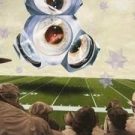
The Sports Desk
Game Over
by Kevin CanfieldThe NFL is an emperor with no clothes, no morals, and vaults of gold. As we prepare for Super Bowl XLVII, author Dave Zirin explains how greed and corruption have ruined the game, endangered players, and fleeced the public.
-

Gallery
America Worked
Pictures of post-war America—views of factories, construction sites, and printing plants—drawn from the career of Ezra Stoller, one of the world’s first and best architectural photographers.
-

Birnbaum V.
Ben Fountain
by Robert BirnbaumOur man in Boston sits down for an extended chat with the author of Billy Lynn’s Long Halftime Walk, covering Kissinger’s travel woes, the beauty of track meets, and the very best place to be a fiction writer in America: Dallas.
-

Birnbaum V.
Attica Locke
by Robert BirnbaumOur man in Boston talks to screenwriter and novelist Attica Locke about writing in Hollywood, the origins of her second novel, and where exactly British prisoners locate the moral heart of The Wire.
-
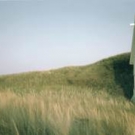
Our Passions, Our Day Jobs
The Death of Farmbrain
by Amy HalloranThese days, everyone seems to enjoy tending chickens and eating local. But lifestyles are rarely ways of life, and the grain that goes into our daily bread is still easiest to obtain from giant operations. Visiting a dying small farm shows why.
-

Man's Best Fiend
Catlike DIY
by Giles TurnbullA long-ignored home improvement project awaits. The tools and materials are at the ready, and there’s nothing to stop you. Then enters a cat named Jeeves.
-
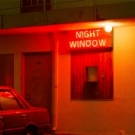
News From America
Here You Know Pretty Much Everybody
by Matt Ray RobisonOur series continues with more random phone calls around small-town USA to find out what’s really going on. This time our editor only makes his calls at night, to see what happens when America goes dark.
-

Our Passions, Our Day Jobs
Under the Bridge Downtown
by Mae RiceWhen you’re a competition-level grocery-store bagger, it’s easy to overlook the messy lives of your co-workers. But when one of them goes missing, and you start to grow up, the picture changes.
-
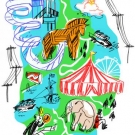
Our Passions, Our Day Jobs
Down and Out in a Repurposed Troop Carrier
by Jason AlbertStunt memoirs are ubiquitous: writers who eat, pray, and love straight into their bank accounts. But what happens when the material for your book—for which you took a dozen amusement park jobs to acquire—isn’t all hijinks and zany locals? What if it’s rather nice?